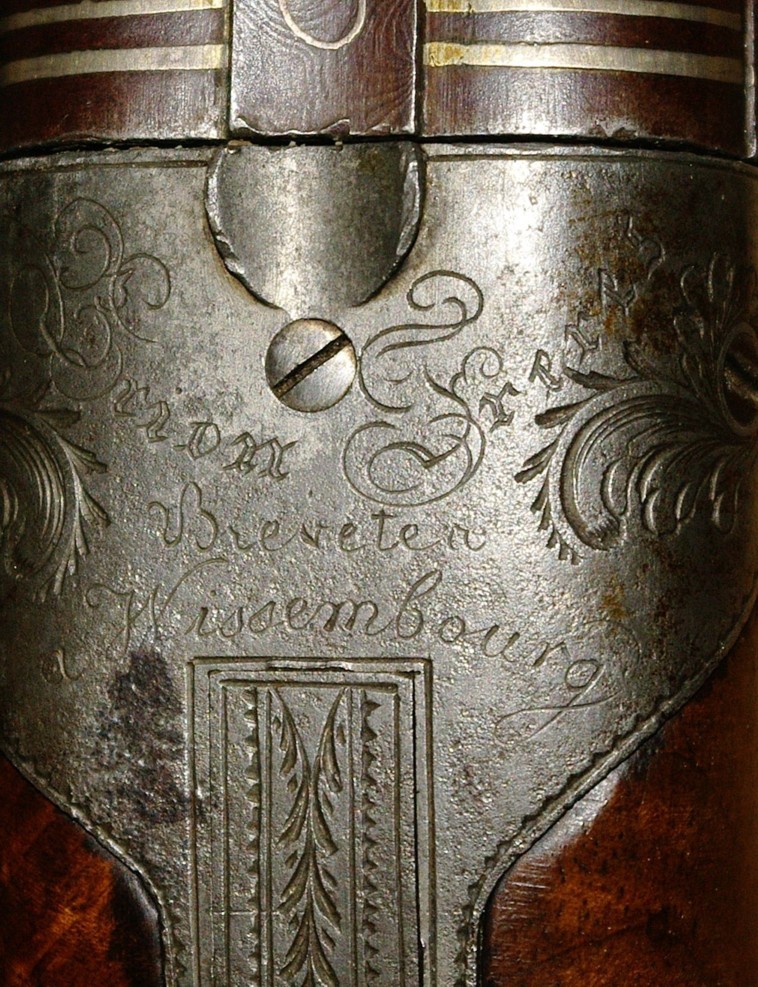Brion Frères
This is
a very rare French three-barrel percussion shotgun, made by the Brion Freres of
Wissembourg in the Alsace region of Bas-Rhin where they are recorded as working
from the 1830's.
This gun dates from
the early to mid 1850's.
To open
the gun and access the nipples, it is necessary to raise the cocking lever which
drawers the hammers back from the nipples.
The gun can then be opened using the release in front of the trigger
guard. The caps are placed, the gun closed, and the cocking lever pressed down
until it locks. There is a bayonet stored in a compartment of the stock. Both
the bayonet and the gun are serial marked Z148.
The
barrels of this gun have been manufactured with a method that became popular in
France in the late 1700s.
Barrels produced by
this method were called Canon a Ruban or "Ribbon barrel". First, the smith
starts off with a sheet of iron that is much thinner than the required barrel.
This sheet is rolled into a thin tube that is the length of the barrel and
slightly smaller than the required barrel diameter. This tube is called a
chemise. Then a thicker strip of iron about an inch broad and chamfered to a
point on either edge is heated a few inches at a time and wound around the
chemise. This strip is called a ruban or "ribbon". Five feet of ruban is used to
make one foot of barrel. Since it is hard to make a barrel from a single ruban,
the smith often made three of these separately, each one foot long, and then
welded them together into a single three-foot long barrel. Next the whole barrel
is placed in the furnace to heat it and forge it as a single barrel. Finally the
barrel is sent to the boring shop, where the chemise or lining is mostly removed
using a boring bit, leaving behind the ruban forming the barrel. This method
produced a barrel of superior strength, as the welds were transverse to the
barrel and could better resist the force of explosion.
Hugo
